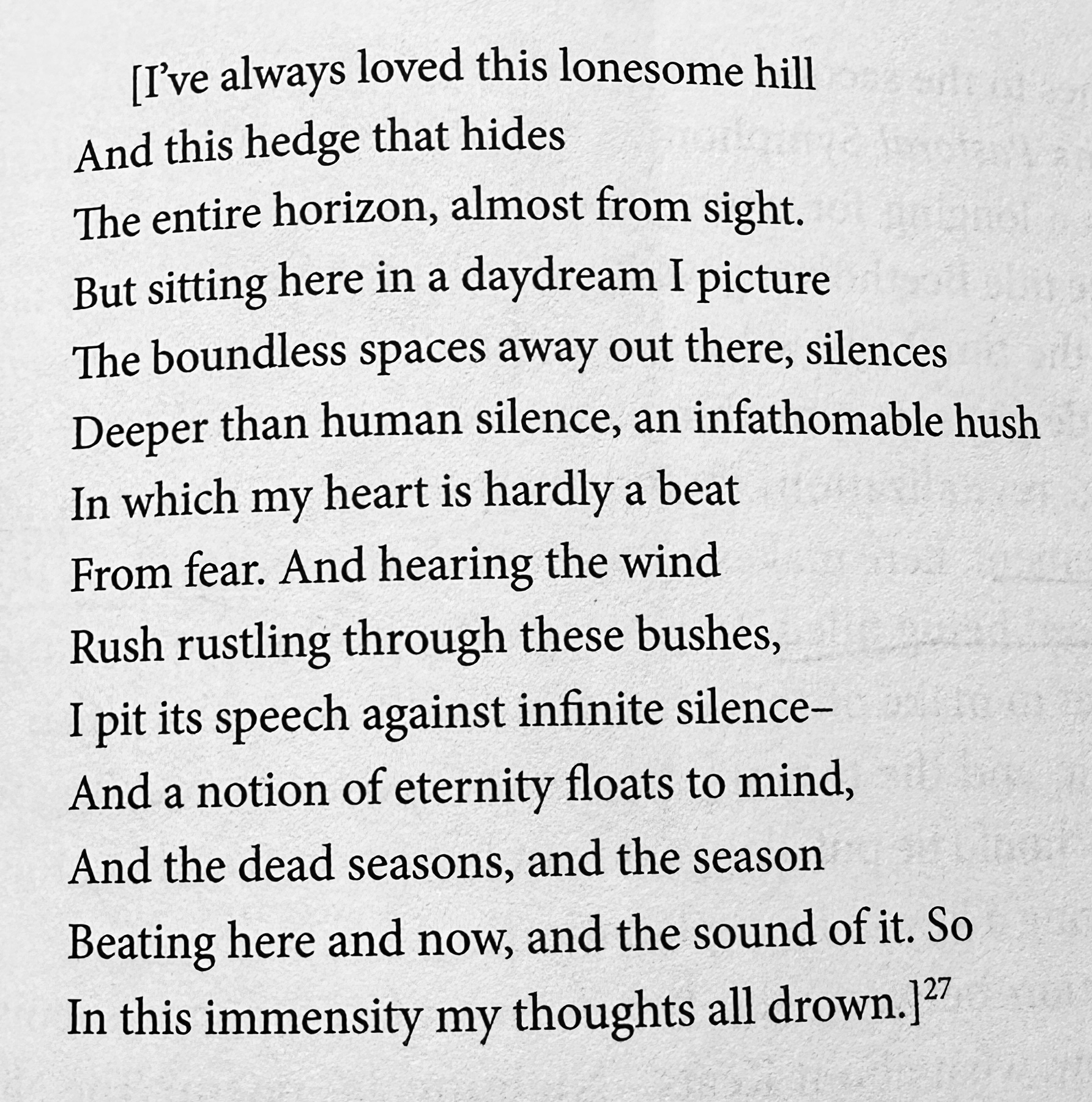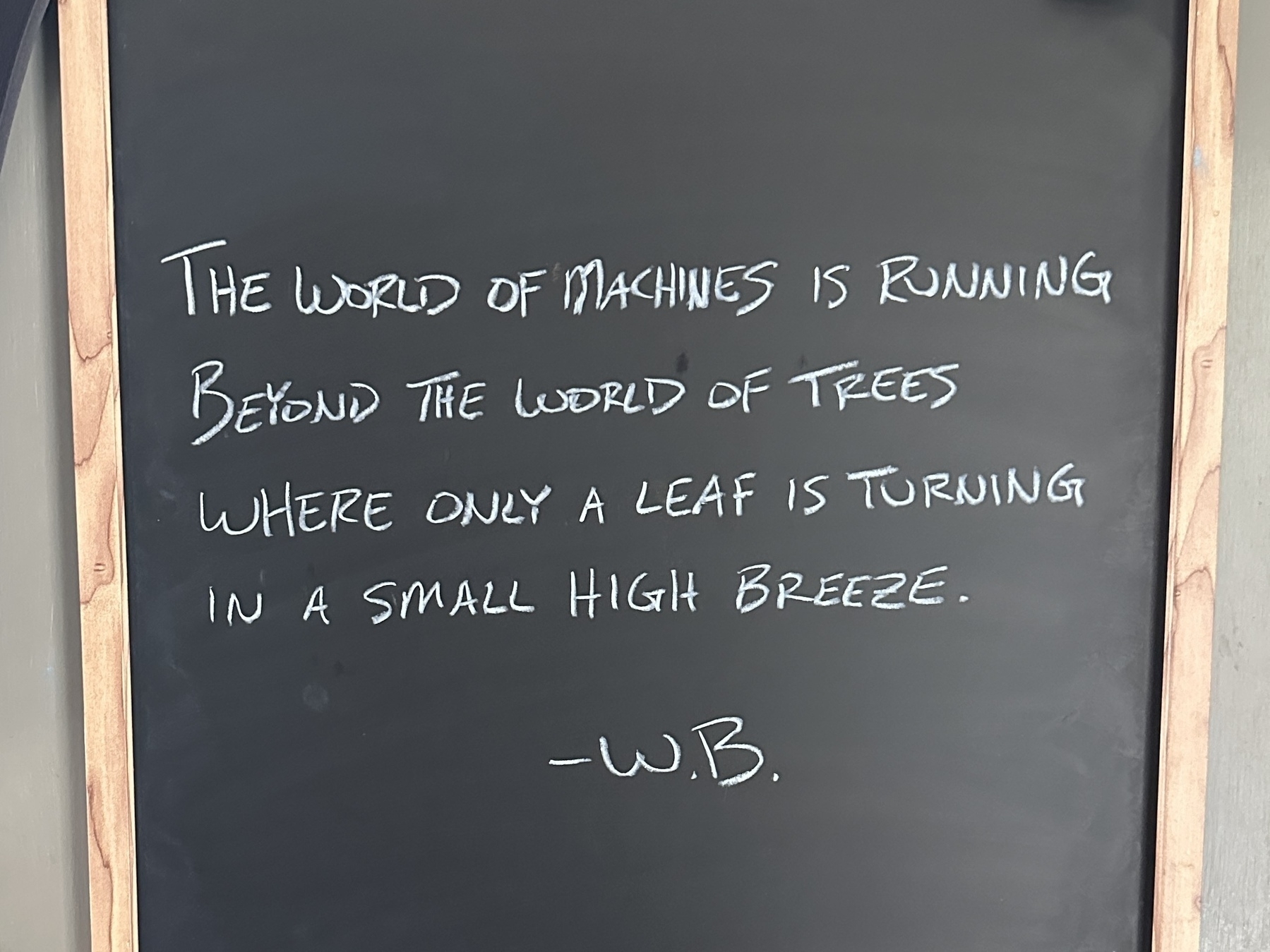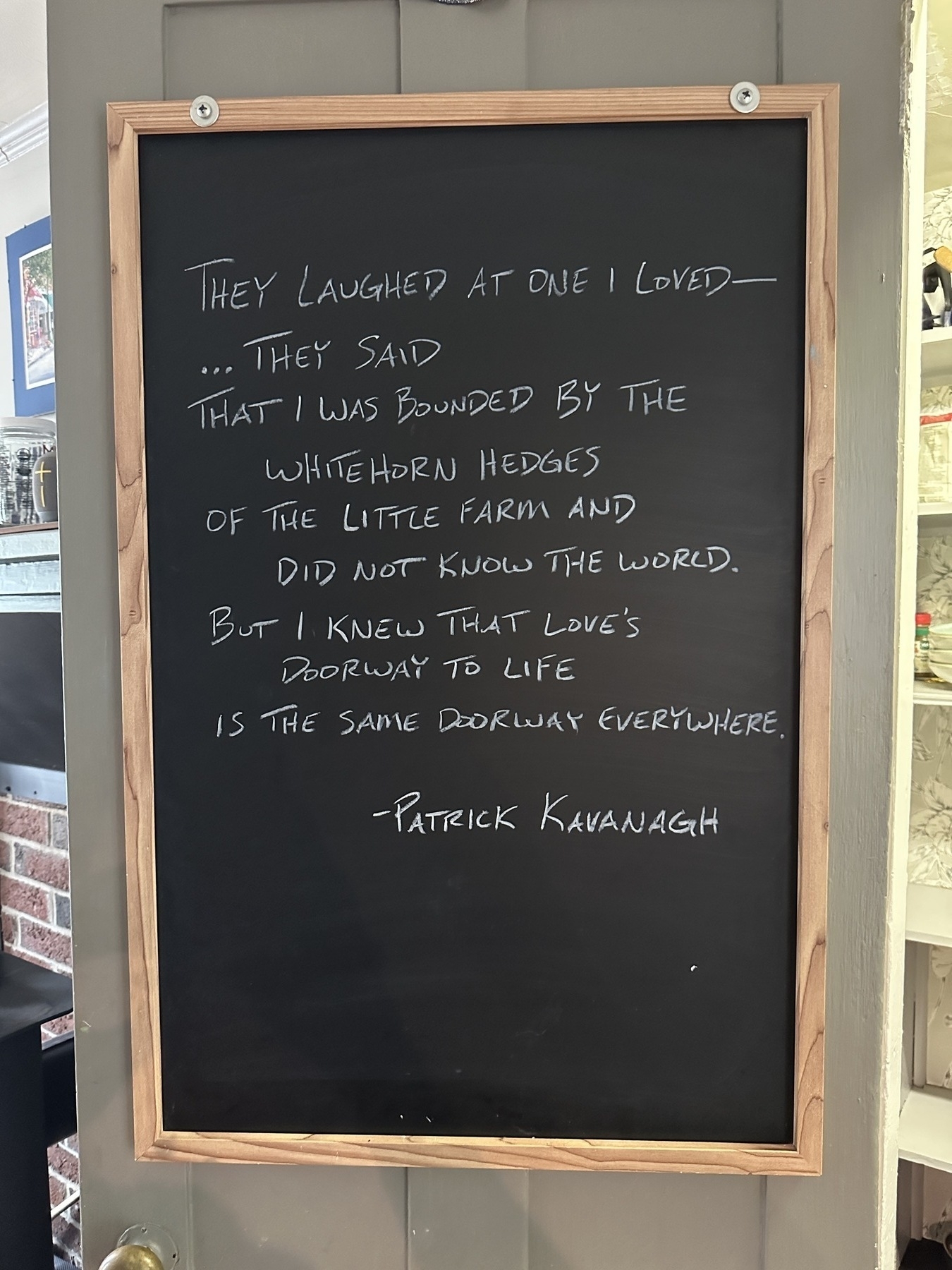Speaking as a former motorcycle addict, I will never understand motorcycle riders with blaring radio speakers. I put this firmly (Firmily?) in the “this is why aliens don’t talk to us” category.
Giacomo Leopardi:

Action shot — I recommend turning the volume way up 🤓
An anonymous Iranian writer whose family lives in Iran:
But there is deep complexity here that needs to be reckoned with. Is sudden, intense suffering from foreign missiles more merciful than prolonged, systematic oppression at the hands of your own government? When people have endured decades of oppression, does the source of their potential liberation matter as much as the liberation itself? And who bears responsibility when both action and inaction guarantee someone will suffer?
These complexities can’t be captured in social media soundbites or simple slogans. They are the impossible calculations that ordinary Iranians are being forced to make.
Kitchen Chalk Talk

Hearing Paul Sellers exclaim “this is very, very efficient woodworking“ while he slowly hand chisels a dado is about as glorious a thing as you will ever find on YouTube.
“The wind is speaking, but we’re living in a motorboat world.” — A wonderful essay and insightful approach from Chis Owen!
Sometimes a poem really blows you over — “Often the Dying Ask for a Map”
Kitchen Chalk Talk
